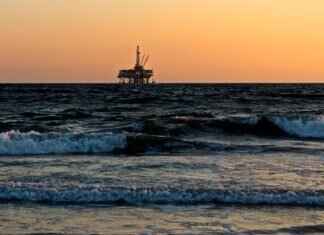Michael Larson, an Ohio man, defied all odds and became known as ‘The Luckiest Man in America’ after his unexpected win on the 1984 episode of the game show “Press Your Luck.” This seemingly random stroke of luck, depicted in the movie “The Luckiest Man in America,” was anything but chance. Larson had meticulously memorized the five patterns of blinking lights on the Big Board, strategically avoiding whammies and walking away with over $110,000. As portrayed by Paul Walter Hauser, Larson’s story sheds light on the corporate-crafted myth of luck and the American Dream.
Debunking the Myth
The title of the film is a nod to the ironic twist of fate that propelled Larson into the spotlight. Behind the scenes, producers hastily coined him ‘The Luckiest Man in America’ as a desperate attempt to salvage their oversight. This calculated move by the corporate machine serves as the crux of the narrative, challenging the notion that success is merely a spin of the wheel away. With a sharp critique, the film delves into the fabricated narratives perpetuated by media, highlighting the stark contrast between reality and the glamorous facade of fame and fortune.
The writers, Samir Oliveros and Maggie Briggs, masterfully unravel Larson’s story, focusing on the events of that fateful day. While acknowledging Larson’s checkered past, the film zeroes in on the intricacies of television production and the chain of events that led to the scandalous win. Drawing inspiration from the archival footage of Larson’s triumph, the movie seamlessly weaves a narrative that captures the essence of the era with its vintage aesthetic and nostalgic appeal. Cinematographer Pablo Lozano skillfully brings the ’80s to life, immersing viewers in a world of flashing lights and color, creating a surreal atmosphere that mirrors Larson’s extraordinary feat.
A Tale of Deception and Determination
“The Luckiest Man in America” strikes a balance between humor and drama, led by the charismatic Paul Walter Hauser. Hauser’s portrayal of Larson is nothing short of captivating, as he immerses himself in the character’s idiosyncrasies and nuances. From his enthusiastic gestures to his jubilant outbursts, Hauser breathes life into Larson, painting a vivid picture of a man on a mission. As Larson navigates the high-stakes game show with precision and wit, Hauser’s performance captures the essence of a man in his element, outsmarting the system at every turn.
The supporting cast, including David Strathairn, Brian Geraghty, and Patti Harrison, complement Hauser’s portrayal with their nuanced performances. Each character adds depth to the narrative, shedding light on the complexities of the television industry and the underlying motives driving the players. As the story unfolds, tensions rise, and secrets are revealed, culminating in a showdown that tests the limits of deception and determination. Through it all, Hauser’s Larson remains a beacon of resilience, defying the odds and emerging victorious in the face of adversity.
In conclusion, “The Luckiest Man in America” is more than just a quirky tale of a game show triumph. It’s a thought-provoking exploration of media manipulation, corporate greed, and the elusive nature of luck. By dissecting Larson’s improbable win, the film exposes the harsh realities of the American Dream, challenging viewers to question the narratives fed to them by the media. As the credits roll, one thing becomes clear: in a world where perception is everything, true luck may be harder to come by than we think.

































